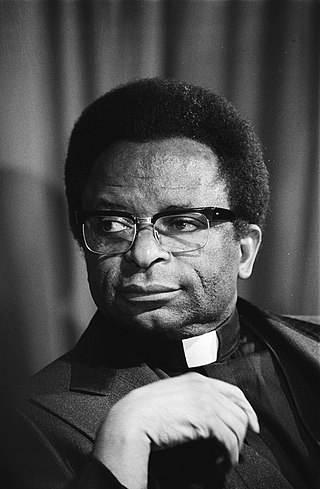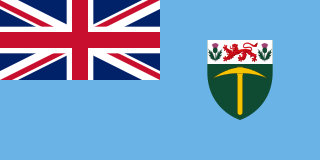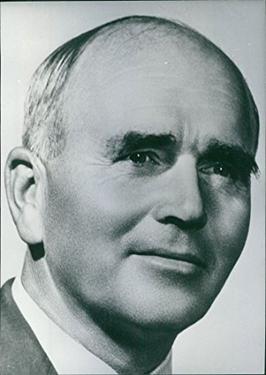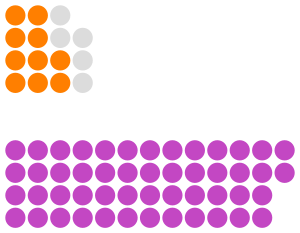
Zimbabwe Rhodesia, alternatively known as Zimbabwe-Rhodesia, also informally known as Zimbabwe or Rhodesia, and sometimes as Rhobabwe, was a short-lived sovereign state that existed from 1 June 1979 to 18 April 1980, though lacked international recognition. Zimbabwe Rhodesia was preceded by another state named the Republic of Rhodesia and was briefly under a British-supervised transitional government sometimes referred to as a reestablished Southern Rhodesia, which according to British constitutional theory had remained the lawful government in the area after Unilateral Declaration of Independence (UDI) in 1965. About three months later, the re-established colony of Southern Rhodesia was granted internationally recognised independence within the Commonwealth as the Republic of Zimbabwe.

Elections in Zambia take place within the framework of a multi-party democracy and a presidential system. The President and National Assembly are simultaneously elected for five-year terms.

Elections in Southern Rhodesia were used from 1899 to 1923 to elect part of the Legislative Council and from 1924 to elect the whole of the Legislative Assembly which governed the colony. Since the granting of self-government in 1923, Southern Rhodesia used the Westminster parliamentary system as its basis of government. The Political party that had most of the seats in the Legislative Assembly became the government. The person in charge of this bloc was the Premier, later renamed Prime Minister, who then chose his cabinet from his elected colleagues.

Rhodesia had limited democracy in the sense that it had the Westminster parliamentary system with multiple political parties contesting the seats in parliament, but as the voting was dominated by the White settler minority, and Black Africans only had a minority level of representation at that time, it was regarded internationally as a racist country.

General elections were held in Rhodesia on 30 July 1974. They saw the Rhodesian Front of Ian Smith re-elected, once more winning every one of the 50 seats elected by white voters.

General elections were held in Southern Rhodesia on 14 December 1962. Voters elected 65 members of the Legislative Assembly. The election was notable for bringing to power the Rhodesian Front, initially under Winston Field, which set the colony on the course for its eventual Unilateral Declaration of Independence.

General elections were held in Rhodesia on 31 August 1977, the last general election in the country dominated by the white minority. Prime Minister Ian Smith, who was conducting negotiations with moderate African nationalists, was forced into an early election by the defection of twelve MPs from his Rhodesian Front party, which denied him the two-thirds majority of the House of Assembly needed to change the constitution. In the event, the Front overwhelmed the breakaway Rhodesian Action Party and all other forces, once again winning every single seat in the 50 seats elected by those of European descent.

General elections were held in Rhodesia in April 1979, the first where the majority black population elected the majority of seats in parliament. The elections were held following the Internal Settlement negotiated by the Rhodesian Front government of Ian Smith and were intended to provide a peaceful transition to majority rule on terms not harmful to White Rhodesians. In accordance with the Internal Settlement, on 1 June, Rhodesia officially became the nation of Zimbabwe Rhodesia, under the government of the United African National Council elected in the 1979 elections. The Internal Settlement was not approved internationally but the incoming government under Bishop Abel Muzorewa did decide to participate in the Lancaster House talks which led to the end of the dispute and the creation of Zimbabwe.

General elections were held in Southern Rhodesia between 14 February and 4 March 1980 to elect the members of the House of Assembly of the first Parliament of the independent Zimbabwe. As stipulated by the new Constitution of Zimbabwe produced by the Lancaster House Conference, the new House of Assembly was to comprise 100 members, 80 of whom would be elected proportionally by province by all adult citizens on a common role, and 20 of whom would be elected in single-member constituencies by whites on a separate roll.

General elections were held in Rhodesia on 10 April 1970. They were the first elections to take place under the revised, republican constitution. The country had declared itself independent in November 1965, shortly after the previous elections; the Rhodesian Front government had always disliked the 1961 constitution and made sure to change it by the time of the next one.

The history of Rhodesia from 1965 to 1979 covers Rhodesia's time as a state unrecognised by the international community following the predominantly white minority government's Unilateral Declaration of Independence on 11 November 1965. Headed by Prime Minister Ian Smith, the Rhodesian Front remained in government until 1 June 1979, when the country was reconstituted as Zimbabwe Rhodesia.

General elections were held in Northern Rhodesia on 20 and 21 January 1964. There were two voter rolls for the Legislative Council, a main roll that elected 65 seats, and a reserved roll that elected 10. Africans elected the main roll, whilst Europeans elected the reserve roll. Other ethnicities were allowed to choose which roll to be part of. The United National Independence Party won the elections, taking 55 of the common roll seats. Its leader, Kenneth Kaunda became Prime Minister, leading the country to independence in October that year, at which point he became President. Voter turnout was 94.8% for the main roll and 74.1% for the reserved roll.

General elections were held in Northern Rhodesia on 30 October 1962, with by-elections for several seats held on 10 December. Although the United Federal Party won the most seats in the Legislative Council, and Northern Rhodesian African National Congress leader Harry Nkumbula had made a secret electoral pact with the UFP, Nkumbula decided to form a government with the United National Independence Party.

A constitutional referendum was held in Southern Rhodesia, then a constituent territory of the Federation of Rhodesia and Nyasaland, on 26 July 1961. The new constitution was approved by about 66% of those who voted; turnout was 77%.

The modern political history of Zimbabwe starts with the arrival of white people to what was dubbed Southern Rhodesia in the 1890s. The country was initially run by an administrator appointed by the British South Africa Company. The prime ministerial role was first created in October 1923, when the country achieved responsible government, with Sir Charles Coghlan as its first Premier. The third Premier, George Mitchell, renamed the post Prime Minister in 1933.
Josiah Moses Gondo was a Rhodesian politician, and a member of parliament (MP) from 1962 to his death. In May 1965, as leader of the United People's Party, he became the first black politician to serve as the Rhodesian House of Assembly's Leader of the Opposition.

Lancelot Bales Smith, was an English-born Rhodesian farmer and politician. Elected to Parliament in the 1950s, he was a founding member of Rhodesian Front in 1962. He was Minister without portfolio in the cabinet of Prime Minister Ian Smith at the time of Rhodesia's Unilateral Declaration of Independence in 1965. In 1968, after serving as Deputy Minister of Agriculture, he was appointed Minister of Internal Affairs, a position he held until 1974, when he exited politics.

The Centre Party (CP) was a centre-left political party in Rhodesia. Founded in 1968, it was a multiracial party opposed to the discriminatory policies of the country's Rhodesian Front-dominated white minority government. It dissolved in 1977.

The Leader of the Opposition in Southern Rhodesia and Rhodesia was a title held by the leader of the largest political party in the most important house of the legislature that was not in government.

Rhodesia, was a self-governing British Crown colony in southern Africa. Until 1964, the territory was known as Southern Rhodesia, and less than a year before the name change the colony formed a part of the Federation of Rhodesia and Nyasaland and hosted its capital city, Salisbury. On 1 January 1964, the three parts of the Federation became separate colonies as they had been before the founding of the Federation on 1 August 1953. The demise of the short-lived union was seen as stemming overwhelmingly from black nationalist movements in Northern Rhodesia and Nyasaland, and both colonies were fast-tracked towards independence - Nyasaland first, as Malawi, on 6 July 1964 and Northern Rhodesia second, as Zambia, on 24 October. Southern Rhodesia, by contrast, stood firmly under white government, and its white population, which was far larger than the white populations elsewhere in the erstwhile Federation, was, in general, strongly opposed to the introduction of black majority rule. The Southern Rhodesian prime minister, Winston Field, whose government had won most of the federation's military and other assets for Southern Rhodesia, began to seek independence from the United Kingdom without introducing majority rule. However, he was unsuccessful and his own party, the Rhodesian Front, forced him to resign. Days prior to his resignation, on Field's request, Southern Rhodesia had changed its flag to a sky blue ensign defaced with the Rhodesian coat of arms, becoming the first British colony to use a sky blue ensign instead of a dark blue one.















